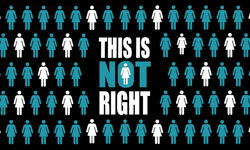
In a letter to readers, Katharine Viner, editor-in-chief, announces that the Guardian has now set a clear path to achieve its net zero emissions target, with an ambitious goal of eliminating at least two thirds of emissions from its operations and full supply chain by 2030. The plan has been informed by a full audit of greenhouse gas emissions from both Guardian Media Group’s direct and indirect emissions, which identified newspaper production and the subsequent supply chain as the biggest contributors to the Guardian’s carbon footprint, says the company.
Plans for reductions will take all aspects of the Guardian’s business into account including energy use digital operations, packaging and travel.
Any emissions which cannot be eliminated will be balanced by certified, auditable carbon offsetting schemes. Further details of the audit results and the plan, including ways to address the remaining emissions that cannot be eliminated, will be released at a later date as part of ongoing transparency and reporting measures.
The Guardian also announced the launch of a new climate data dashboard - Environment Now - that shows the latest metrics on a range of climate indicators including carbon levels in the atmosphere, global temperature change, Arctic ice extent, Greenland ice mass and sea level. This will be an ongoing resource for readers around the world.
The new dashboard builds on a number of editorial moves announced last year including the change in language to describe the urgency and scale of the climate crisis, as well as commitments to give the environmental coverage the attention and prominence it deserves with investigations such as the Polluters, and the Guardian’s global team of dedicated environment reporters.
The climate will also be front and centre in an environment special ‘Edition Earth’ on the Guardian’s Editions app (previously called the Daily app), with digital subscribers able to delve into a selection of the best environmental reporting from the past year. Non-subscribers can access the app by starting a two week free trial to the digital subscription and downloading the Guardian Editions app on iOS or android.
The Guardian is hosting a series of online events for readers wanting deeper discussion and understanding. This includes editor-in-chief Katharine Viner and Bill McKibben discussing the responsibility of the global media in the climate emergency on 16 October, a look at what is next for the climate chaired by the Guardian’s Fiona Harvey on 12 Nov, and Maya Goodfellow in conversation with Noam Chomsky and Robert Pollin on a green new deal on 25 November. Tickets and more information are available online.
Katharine Viner, editor-in-chief, Guardian News & Media said: “The global climate crisis is the emergency of our times. That is why the Guardian will keep reporting on it, raising the alarm, investigating the crisis and possible solutions, until we begin to see genuine systemic change. We also believe we must be accountable for our own actions, so we will continue to update readers on our environmental commitments and progress.”
Annette Thomas, chief executive, Guardian Media Group said: “As a global media business we want the Guardian to lead the way not only on environmental reporting, but also in our own commitment to environmental sustainability. Today’s announcement of a target to eliminate two thirds of our carbon emission by 2030 is a bold first step to ensure we live up to the values of our readers and Guardian journalism. We remain committed to improving, learning and working with partners for the greatest impact.”
The Guardian’s commitment to environmental sustainability has helped guide further operational and commercial decisions, building on the Guardian’s move to stop accepting advertising from fossil fuel extractors in January 2020, says the company.
In September, the Saturday Guardian switched to 100% recyclable paper wrapping for its supplements, which is currently being scaled across the country.
Guardian Jobs has just launched a new Green Jobs offering to connect employers with sustainability professionals through clear labelling and prominence of green jobs on the site.












